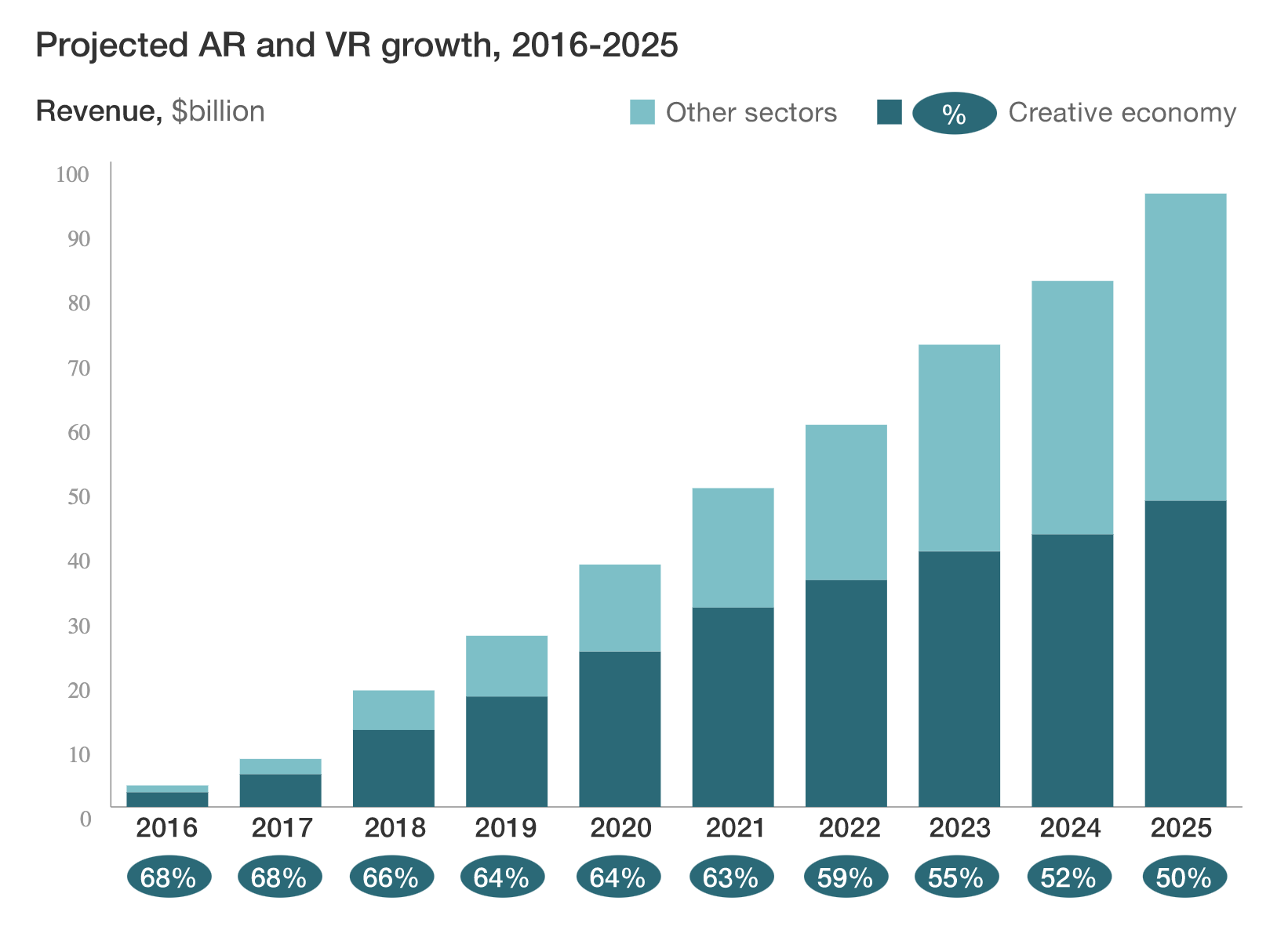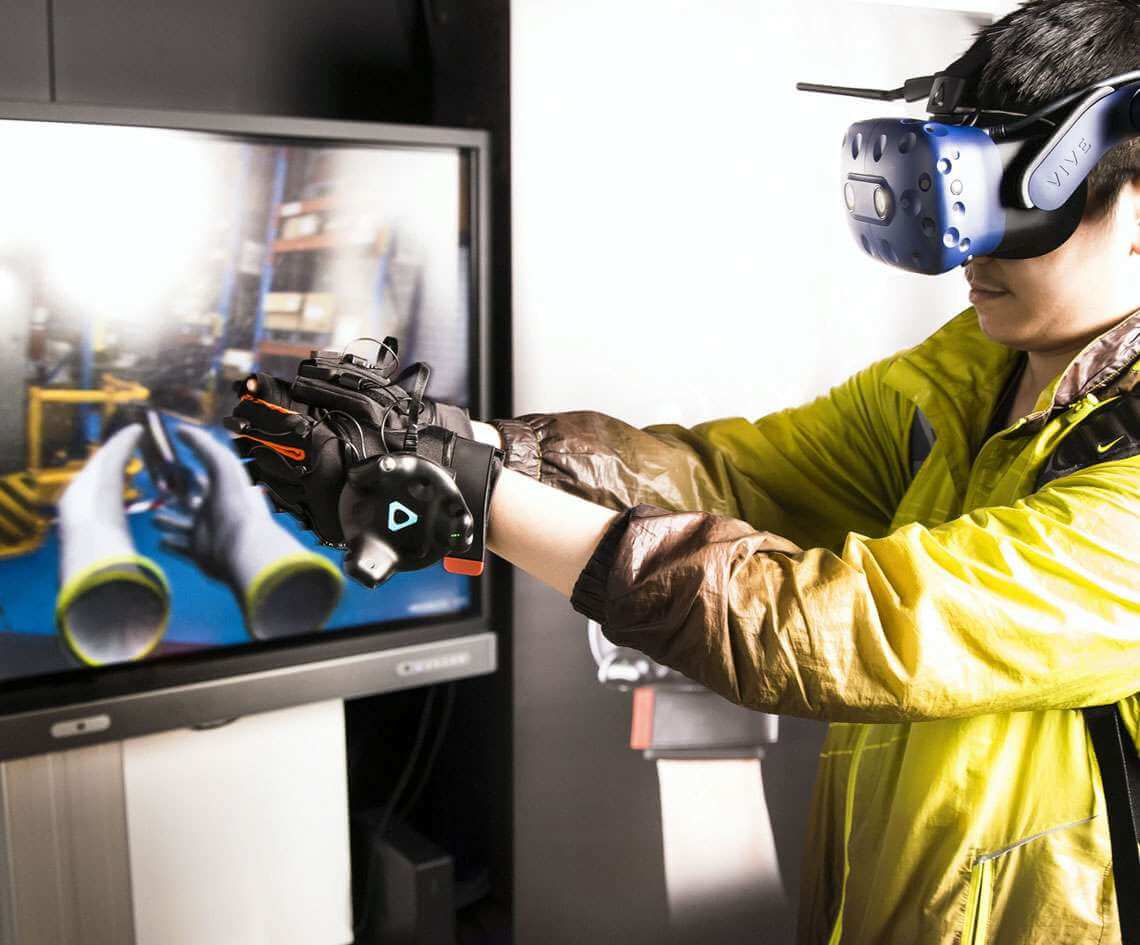Virtual Reality and Augmented Reality; you might’ve heard these terms many times. Several people use them interchangeably as there exists ambiguity regarding their meaning. Though closely related to each other there is a significant difference between both of them.
And this is why in this article we’ll tell you everything you need to know about AR & VR. We’ve created an in-depth guide to usher awareness about them as they possess high importance in the technological arena. So without any further ado, let’s get started!
All about AR & VR
Thanks to high power processors, enhanced innovation, faster internet, and increased software development, both AR & VR are seeing an upward growth trajectory. While some industries exclusively use AR or VR many are seeing a fusion of both to serve their customers in a better way. Industries would not only achieve an increase in efficiency but also in safety, and at the same time, there would be a reduction in complexity associated with many tasks, which we have talked about in the further sections.
Now, we must do a deep-down analysis of what both AR & VR mean. So here are the meaning and inherent features of the two-
Virtual Reality
Simply stating, Virtual Reality is an artificial environment that completely replaces the real world. It is a computer-generated space that resembles a real space. You feel as if you are in a different world altogether, being able to interact and also move in that world.
VR has been in our lives since 1968, but there prominent interaction with us occurred in the lives of many of us since the invention of VR headsets. And this is why people tend to correlate VR with those headsets. However, there are several other uses of VR which we have described in the section below.
Gaming
Yes, this is the first area that comes in our mind thinking about VR. At present VR gaming is in a nascent stage and this is why people prefer gaming on their PCs. However, the market is all set to grow as massive innovation is being done in this sector.
As of now, roller coaster rides, being able to steer spaceships, climbing mountains are the major games available to be played. Major video game producers such as Valve, Activision are also making efforts and the future is quite bright in the VR gaming section.
Training
From business houses to universities, almost every industry is using VR to train their staff or students. VR provides a good in-depth look into human anatomy helping medical students to better understand the patient’s needs. The staff of any business establishment could also be efficiently trained, for example, in a fire drill; emergency response training is much easier than creating such an environment in the real world.
BMW has been using VR to test how various component of the car would look like, without even creating a prototype. In the same way, designers at Ford are known to collaborate with each other to virtually tour a new vehicle, even while physically being at different locations.
Real Estate
In the past, real estate companies used photos to give a tour of prospective properties. Now they are utilizing VR to give the customers a walkthrough of their future homes.
These were examples of a few out of several industries that use or could possibly use VR in the future. Now let’s talk about Augmented Reality or AR.
Augmented Reality
While VR creates an interactive, completely digital environment, AR on the other hand, involves superimposing a digital layer on the physical world. This is why it is known as Augmented Reality, as it augments the real-world experience by integrating the real world with the virtual world. So in VR, you get the experience of being ‘there’ and while in AR, you are already ‘there’.
Research states 66% of organizations believe AR to be more applicable to them than VR. There are several areas which are witnessing an upward trend in AR usage, some are-
Navigation
‘Just point your camera towards a building and see all the necessary information associated with it.’ Yes, AR helps tremendously in navigation where virtual objects overlapping real world can show directions and guide you to the intended places.
While traveling in a foreign country, you can just point your camera towards an instructional board, written in a different language and the software would translate what’s written into the language of your choice.

Repair & Maintenance
What happens when you try to repair some machine? Well, you have to watch a lot of videos and remember the instructions or do both the task simultaneously. But now with AR, you can just point the phone camera to the machine and the software assist in completing a repair task through real-time visualization.
Immersive Training
AR could be used in training the employee, helping him take decision in a digitally guided environment. There are several industries where VR is better for training, whereas some require AR for the same.
Gaming
Remember the Pokémon Go game? Well, it is a classic example of an AR game. While VR provides a more immersive gaming experience, AR too, is not behind in the race. We may witness the arrival of several games bases on AR technology in the future.
Again, these are examples of a few out of several industries that use or could possibly use AR in the future. Now let’s talk about what the future holds when it comes to AR & VR.
What is the future of AR & VR?
According to research done by Goldman Sachs, these industries would create a market worth $95 billion by 2025. It is expected that creative industries would be the forerunner in the utilization of AR & VR. From video gaming to entertainment, from live events to retail shopping, we’ll witness the impact of both AR & VR in several creative industries.
Conclusion
Overall it could be said that we are in a nascent stage when it comes to AR & VR, both AR & VR would take a significant position in our lives soon. To know more, connect with GTECH, an AR & VR company experts in developing virtual and augmented reality solutions for clients across multiple sectors.
Related Post
Publications, Insights & News from GTECH








